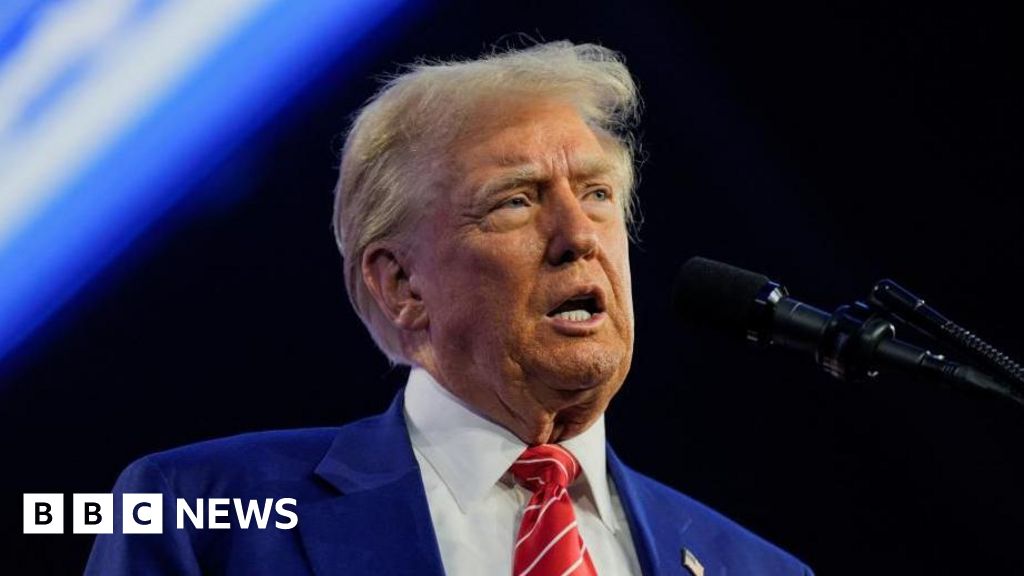A judge has scheduled Donald Trump’s sentencing for January 10 in connection with his hush-money case in New York, occurring less than two weeks before his upcoming inauguration as president.
Justice Juan Merchan of New York indicated that he would likely refrain from imposing jail time, probation, or fines, opting instead for an “unconditional discharge.” He also noted that Trump could attend the hearing either in person or virtually.
Trump previously tried to leverage his election victory to have the charges against him dismissed.
On social media, the president-elect criticized the judge’s ruling as an “illegitimate political attack” and labeled the case as “merely a rigged charade.”
In May, Trump was convicted on 34 felony counts for falsifying business records linked to a $130,000 (£105,000) payment made to adult film actress Stormy Daniels.
These charges stemmed from efforts to conceal reimbursements to his former lawyer, Michael Cohen, who paid Daniels to stay silent about an alleged sexual encounter with Trump just days before the 2016 election.
Denying any wrongdoing, Trump pleaded not guilty, arguing that the prosecution was an attempt to undermine his 2024 presidential campaign.
In a post on Truth Social, Trump asserted that the judge’s sentencing order “contradicts our Constitution and, if upheld, would signify the end of the presidency as we know it.”
Trump’s spokesperson, Steven Cheung, earlier characterized the order as part of a “witch hunt.”
He stated, “President Trump must be allowed to proceed with the presidential transition and perform the essential duties of the presidency without hinderance from remnants of these political pursuits.”
“There should be no sentencing, and President Trump will continue to combat these fabrications until they are all resolved.”
In a recent motion, Trump contended that the case would overshadow his presidency and hinder his governance.
Justice Merchan mentioned that he had been informed of several options to alleviate Trump’s concerns about the distraction from a criminal case during his presidency, which did not require the “extreme remedy” of overturning the jury’s decision.
Possible options included postponing sentencing until after Trump, 78, leaves office in 2029, or ensuring that any sentence would not involve incarceration.
Initially, Trump had unsuccessfully argued that the prosecution violated a Supreme Court ruling on presidential immunity.
In July, the Supreme Court ruled that presidents enjoy significant immunity from criminal prosecution for “official actions” taken during their term.
Nevertheless, Justice Merchan affirmed last month that Trump’s hush money conviction was valid.
Trump is poised to become the first convicted felon to assume the presidency.
He may explore appealing the conviction following the sentencing.
While falsifying business records can carry a penalty of up to four years in prison in the U.S., there is no mandatory minimum sentence, and incarceration is not obligatory.
Even before his election success, many legal experts believed that jail time was improbable for Trump given his age and legal history.
Trump is also facing charges in three other state and federal cases: one concerning classified documents and two related to his alleged attempts to overturn the results of the 2020 election.
The initial sentencing date was set for November 26, but Justice Merchan postponed it after Trump won the election.
